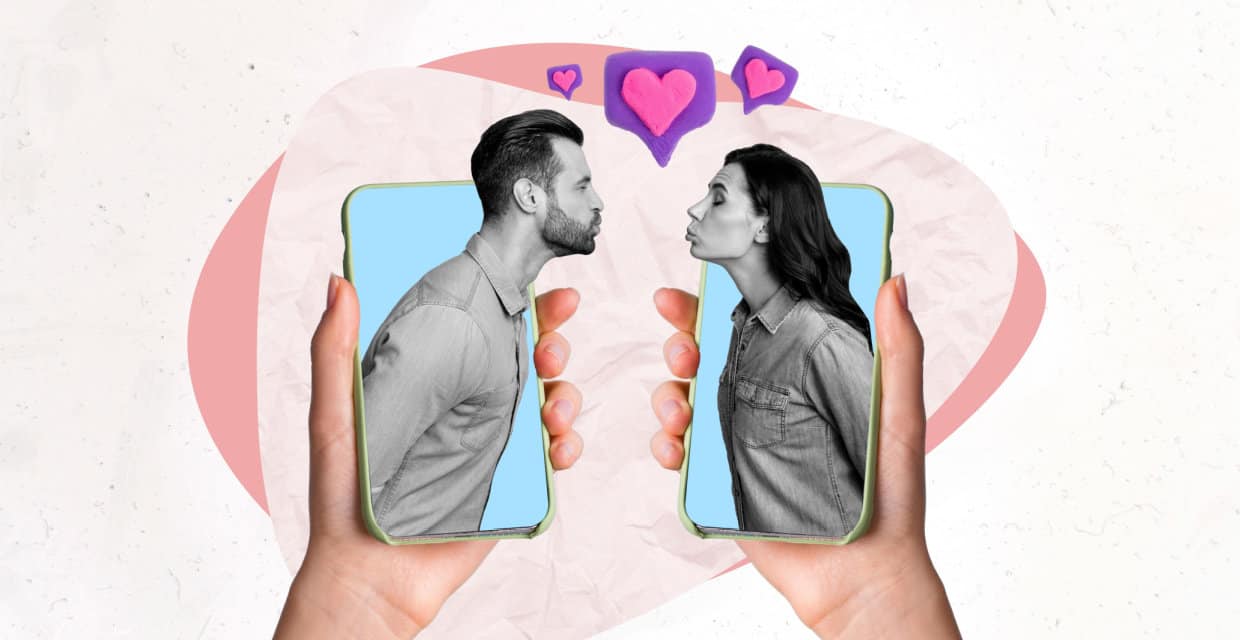Online dating has transformed the way people meet and form relationships, offering a platform where individuals can connect across vast distances, explore potential matches, and navigate the complexities of modern romance. What was once seen as a niche activity has evolved into a mainstream practice, with millions of people using dating apps and websites to find love, companionship, or casual connections. The advent of online dating has not only changed how we approach romantic relationships but has also influenced broader social dynamics and cultural perceptions of dating. With the rise of specialized platforms catering to diverse interests, backgrounds, and preferences, online dating has become an integral part of contemporary society.
One of the most significant advantages of online dating is the increased access it offers to a wider pool of potential partners. Traditionally, meeting new people required individuals to rely on social circles, workplace encounters, or random interactions. These methods, while effective for some, limited the scope of possibilities. Online dating platforms break down geographic and social barriers, allowing people to connect with others they may never have encountered otherwise. Whether you’re looking for someone with shared interests, similar values, or a specific lifestyle, online dating gives you the tools to search for a match that aligns with your preferences, broadening your horizons beyond local options.
Online dating also provides a level of convenience that traditional methods cannot match. In today’s fast-paced world, finding time for face-to-face meetings or social events can be challenging. Online dating apps allow people to interact at their own pace, from the comfort of their homes or while on the go. Users can take their time to get to know potential matches before committing to in-person meetings, allowing for a deeper connection before the pressures of physical interaction. Furthermore, many platforms provide features such as chat, video calls, and questionnaires that help facilitate communication, making it easier for people to gauge compatibility. This ease of use and accessibility has contributed to the popularity of online dating, particularly among individuals with busy schedules or those new to a particular area.
Despite its advantages, online dating is not without its challenges. The anonymity of the internet can sometimes make it difficult to gauge a person’s true intentions, and misrepresentation is a common issue. People may present themselves in a way that is not entirely authentic, either through misleading photos or exaggerated profiles. While some platforms are now implementing verification features to combat these problems, the risk of encountering deception remains. Another challenge is the overwhelming number of choices available. With so many profiles to sift through, it can be easy to feel fatigued or uncertain, leading to the phenomenon of “paradox of choice,” where the abundance of options can make it harder to make a decision. For some, this can create a sense of dissatisfaction or cause hesitation when it comes to moving forward with a potential match.

In addition to these challenges, kl escort online dating has changed the way we view romantic relationships and expectations. The casual nature of many platforms has led to a rise in short-term dating and “hookup culture,” where individuals may prioritize immediate gratification over long-term commitment. This shift in dating norms has sparked debates about the value of online dating in fostering genuine relationships. However, other platforms cater to those looking for deeper, more committed connections, emphasizing long-term compatibility over superficial interactions. The variety of online dating sites and apps means that individuals can choose platforms that align with their own dating goals, whether they are looking for casual fun, a serious relationship, or even marriage.
The future of online dating continues to evolve with the advancement of technology. Features such as artificial intelligence and machine learning are being incorporated into dating platforms to provide more accurate match suggestions based on user behavior, preferences, and personality traits. Additionally, virtual and augmented reality technologies may offer new ways for people to interact and connect, creating more immersive experiences beyond text and video chat. As online dating adapts to the digital age, it’s likely that the methods we use to form relationships will continue to change, offering even more personalized and dynamic ways to meet new people. Despite the challenges it faces, online dating is expected to remain a significant part of the way people connect and form romantic bonds in the future.
Online dating has revolutionized how we approach relationships, offering an accessible and efficient way to meet people in a fast-paced world. It provides unparalleled access to potential partners, convenience, and the ability to match with individuals who share similar interests and values. While challenges such as misrepresentation and choice overload remain, the benefits of online dating have made it a popular and effective tool for millions of people worldwide. As technology continues to advance, the future of online dating holds exciting possibilities, with even more tailored experiences and innovative features on the horizon. For those looking to explore new connections, online dating remains a powerful tool in the modern quest for love and companionship.

Leave a Reply